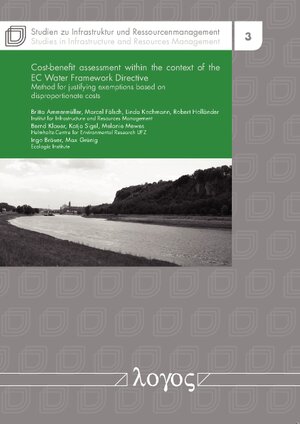
×
![Buchcover ISBN 9783832529574]()
Cost-benefit assessment within the context of the EC Water Framework Directive
Method for justifying exemptions based on disproportionate costs
von Britta Ammermüller und weiterenThe Institute for Infrastructure and Resources Management (IIRM) at the University of Leipzig pursues an integrative approach that addresses economic, environmental and social aspects of sustainable resources management in the relevant fields of energy, water, land-use and waste. The IIRM research activities focus on solving environmental and energy related infrastructure problems and are geared to provide scientific support for decision makers on corporate, municipal, national and global levels.
The European Water Framework Directive aims at reaching good status of all European water bodies by 2015. With Article 4, the European Water Framework Directive recognises the need for an efficient use of financial resources in achieving its objectives. The presented guideline proposes a feasible methodology for assessing disproportional costs for potential measures through a non monetary cost-benefit assessment. The approach can be used to justify exemptions, if good status of a water body could not be achieved due to disproportional cost
The European Water Framework Directive aims at reaching good status of all European water bodies by 2015. With Article 4, the European Water Framework Directive recognises the need for an efficient use of financial resources in achieving its objectives. The presented guideline proposes a feasible methodology for assessing disproportional costs for potential measures through a non monetary cost-benefit assessment. The approach can be used to justify exemptions, if good status of a water body could not be achieved due to disproportional cost


